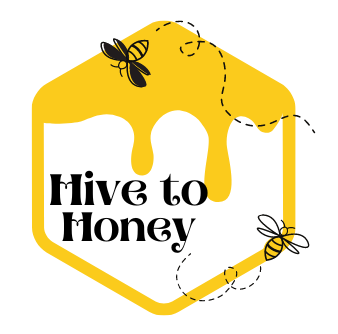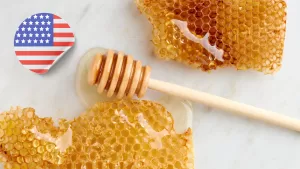Honey is one of nature’s most delicious and beneficial products, but behind every jar of honey is a delicate relationship between bees, the environment, and human beekeepers. As honey demand increases, sustainable honey harvesting practices are becoming essential to protect bee populations and the ecosystems they support. Sustainable honey harvesting goes beyond extracting honey for profit—it focuses on the long-term health of bees, maintaining biodiversity, and minimizing the environmental impact of beekeeping practices.
In this in-depth guide, we’ll explore what sustainable honey harvesting is, why it’s important, and how ethical beekeeping can protect both bees and the environment. We’ll also discuss practical methods beekeepers can implement to ensure that their honey harvests are not only productive but also sustainable. Let’s dive into the world of ethical honey production.
Table of Contents
Toggle- What is Sustainable Honey Harvesting?
- Why is Sustainable Honey Harvesting Important?
- Top 5 Sustainable Honey Harvesting Practices
- Sustainable Beekeeping Tools and Techniques
- Ethical Beekeeping: Protecting Bee Health
- The Future of Sustainable Honey Harvesting
- How Consumers Can Support Sustainable Honey Harvesting
- Conclusion: The Sweet Reward of Sustainability
What is Sustainable Honey Harvesting?
Sustainable honey harvesting is the practice of collecting honey from beehives in a way that supports the health of the bee colony and its surrounding environment. It is based on maintaining a balance between the beekeeper’s needs and the bees’ natural rhythms, ensuring that honey production does not compromise the bees’ ability to survive, reproduce, and pollinate.
The goals of sustainable honey harvesting include:
- Ensuring bees have enough honey for their own use, especially during the winter.
- Avoiding the use of harmful chemicals and pesticides in beekeeping practices.
- Supporting biodiversity by encouraging pollination and planting bee-friendly flowers.
- Preventing over-harvesting to maintain long-term hive productivity.
This method contrasts with industrial-scale honey production, which often prioritizes yield over bee health, sometimes to the detriment of the bees themselves.
Why is Sustainable Honey Harvesting Important?
1. Bee Population Decline
The world’s bee population is under serious threat due to habitat loss, pesticides, disease, and climate change. In many countries, including the U.S. and parts of Europe, bee populations have been declining rapidly. Bees play a critical role in pollination, responsible for the growth of many fruits, vegetables, and other crops. Without bees, global food production would suffer immensely.
Sustainable honey harvesting ensures that bees are not overworked or deprived of the resources they need to survive and thrive. It encourages practices that protect the bees’ health and, in turn, supports healthy ecosystems.
2. Environmental Conservation
Beekeeping, when done unsustainably, can have negative environmental impacts. For example, monoculture farming (growing a single type of crop) can lead to reduced biodiversity and poor forage options for bees. Sustainable beekeepers contribute to environmental conservation by promoting diverse, bee-friendly habitats that provide bees with a wide range of flowering plants to forage from.
3. Consumer Demand for Ethical Products
Consumers are increasingly seeking products that are ethically and sustainably sourced. Sustainable honey harvesting responds to this demand by offering honey produced in a way that prioritizes bee welfare and environmental stewardship. Ethical beekeeping also aligns with organic and natural farming movements, making it a key component of the growing sustainability movement.
Top 5 Sustainable Honey Harvesting Practices
Here are five practices that every beekeeper should adopt to ensure sustainable and ethical honey harvesting:
1. Leave Enough Honey for the Bees
One of the cardinal rules of sustainable honey harvesting is to leave enough honey in the hive for the bees. Honey is their primary source of food, especially during the colder months when flowers are not blooming. A common guideline is to leave at least 30-50 pounds of honey in the hive, depending on the climate and the size of the colony.
2. Time Your Harvests Properly
Harvesting honey too early in the season or too frequently can stress bees and weaken the hive. Sustainable beekeepers time their harvests to align with the bees’ natural cycles, typically collecting honey after the main nectar flow in late summer or early fall. This gives the bees time to build up their stores for the winter.
3. Use Natural Beekeeping Methods
Avoiding synthetic chemicals and pesticides is crucial for bee health. Instead, sustainable beekeepers rely on organic and natural methods to manage pests and diseases in their hives. For example, using essential oils like thyme or eucalyptus can help control varroa mites without the need for harsh chemicals that could harm bees or contaminate honey.
4. Practice Hive Splitting Instead of Replacing Queens
In conventional beekeeping, some beekeepers replace queens every year to maintain high productivity. However, this can disrupt the hive’s natural dynamics and lead to genetic homogeneity. Hive splitting is a more sustainable approach where the beekeeper encourages the bees to raise a new queen naturally. This not only strengthens the colony but also preserves the genetic diversity of the bees.
5. Support Biodiversity
Creating a healthy environment for bees is about more than just maintaining the hive. Beekeepers should plant diverse, native plants that provide nectar and pollen throughout the season. By supporting biodiversity, beekeepers can help ensure a steady food supply for their bees while contributing to the broader health of local ecosystems.
Sustainable Beekeeping Tools and Techniques
1. Top-Bar Hives vs. Langstroth Hives
Top-bar hives are often considered more sustainable than the traditional Langstroth hives. In a top-bar hive, the bees build their comb naturally along wooden bars, which mimics their natural hive structure. This method allows bees to regulate their hive size more effectively and reduces the amount of honey harvested at once.
Langstroth hives, while popular for commercial beekeeping, require more management and involve taking entire frames of honeycomb, which can be more disruptive to the colony. However, with careful management, Langstroth hives can also be used sustainably.
2. Honey Extraction Techniques
Sustainable honey extraction methods focus on minimizing disruption to the hive. Manual extraction using a honeycomb knife or crush and strain method is a gentle way to collect honey without damaging the comb or disturbing the bees too much. For larger-scale operations, honey extractors can be used, but care should be taken not to overharvest or stress the hive.
3. Use of Bee Smokers
While bee smokers are a traditional tool in beekeeping, overuse of smoke can stress bees and interfere with their ability to communicate through pheromones. Sustainable beekeepers minimize the use of smoke or opt for natural alternatives like using herbal teas or essential oils to calm the bees during hive inspections.
Ethical Beekeeping: Protecting Bee Health
Sustainable honey harvesting is just one aspect of ethical beekeeping, which emphasizes the welfare of bees as living creatures with intrinsic value. Ethical beekeeping practices include:
- Limiting hive disturbances: Beekeepers should limit the frequency of hive inspections and only intervene when necessary to avoid stressing the bees.
- Creating natural swarming conditions: Swarming is the bees’ natural way of reproducing and expanding their colonies. Ethical beekeepers allow their bees to swarm naturally, which can contribute to bee population growth.
- Maintaining genetic diversity: Ethical beekeepers focus on maintaining the genetic diversity of their bees by allowing natural queen reproduction instead of artificially inseminating queens or importing non-native bees.
- Reducing chemical use: Ethical beekeepers avoid synthetic chemicals and antibiotics, opting for natural pest control methods and ensuring their bees live in a healthy environment.
The Future of Sustainable Honey Harvesting
As awareness of the environmental and health challenges facing bees continues to grow, so does the demand for sustainable and ethical honey harvesting practices. The future of honey production lies in balancing the needs of the bees with the needs of beekeepers and consumers. By prioritizing bee health, supporting biodiversity, and adopting eco-friendly practices, beekeepers can ensure that their honey harvests are not only profitable but also sustainable for generations to come.
How Consumers Can Support Sustainable Honey Harvesting
Consumers play a critical role in promoting sustainable honey harvesting by choosing to buy honey from ethical and sustainable sources. Look for labels such as organic, fair trade, or sustainably sourced honey, and support local beekeepers who practice sustainable methods. By doing so, consumers can help drive the demand for ethical honey production, ensuring that bee populations and the environment are protected.
Conclusion: The Sweet Reward of Sustainability
Sustainable honey harvesting is not just about producing honey—it’s about preserving the delicate balance between bees, the environment, and human activity. By adopting sustainable beekeeping practices, beekeepers can protect the health of their hives, support biodiversity, and ensure that honey production remains a viable and eco-friendly practice.
As awareness grows around the importance of ethical beekeeping and sustainable honey harvesting, both beekeepers and consumers have the opportunity to make choices that protect the environment and promote bee health. By working together, we can ensure that future generations will continue to enjoy the sweet, golden reward of honey, produced sustainably and with care.
Let’s keep the bees buzzing and the honey flowing sustainably!



